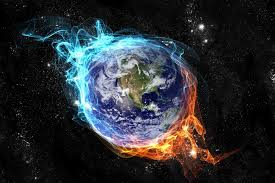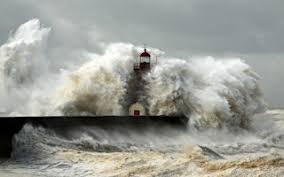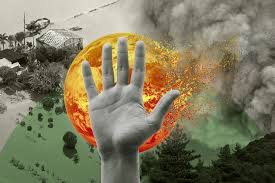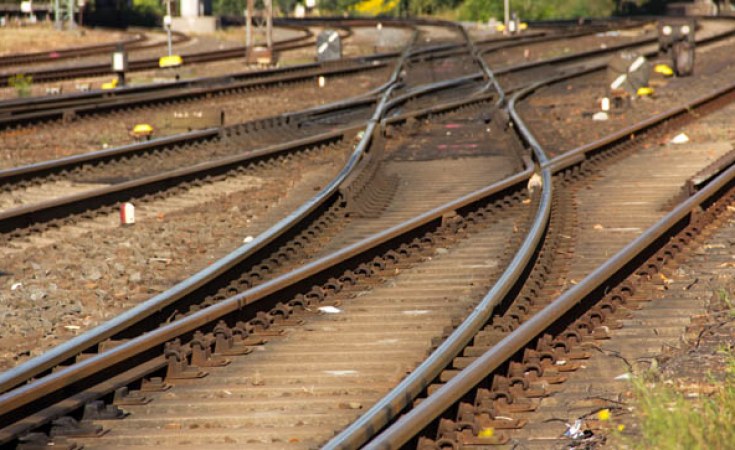Climate Catastrophe: How Close Are We?

Sir David Attenborough once said, “If we don’t take climate change seriously today, we will be doing so painfully tomorrow.”
That “tomorrow” is beginning to look a lot like now.
The world isn’t waiting for the climate crisis, it’s already living through it, 2024 was one of the hottest years ever recorded, glaciers retreated at record speed, and ocean heatwaves bleached coral reefs that once seemed untouchable, These aren’t distant warnings, They’re daily headlines, The planet has entered a new phase where what scientists once called predictions are now measurements.
So how close are we, really, to a full-blown climate catastrophe? closer than we’d like to admit but not beyond repair, The evidence points to realities that define where we stand and what happens next.

The Planet Is Already Reacting
It’s no longer theoretical, Climate change is not waiting for 2050, it’s here, unfolding in real time, According to the Intergovernmental Panel on Climate Change (IPCC), Earth has already warmed by about 1.2°C above pre-industrial levels, That might sound small, but in planetary terms, it’s enormous, Every fraction of a degree means stronger storms, longer droughts, and heavier floods.
2023–2024 for instance, Europe experienced its worst drought in decades, Wildfires raged across Canada and Greece, some part of Africa faced a deadly mix of heat and famine. Scientists are now linking these “natural disasters” directly to human-caused emissions not coincidence, not cycles.
The oceans are absorbing more than 90% of excess heat, expanding, and melting polar ice at a faster rate than expected, That combination pushes global sea levels up and coastal communities closer to displacement, If you live in Lagos, Miami, or Jakarta, this isn’t a problem for “future generations” It’s a challenge for your lifetime.
The point isn’t panic, It’s awareness,The signs of stress are everywhere,from dying coral reefs to shrinking glaciers and they all tell the same story, the climate system is responding faster than our policies are adapting.
Delay Has a Price Tag
The uncomfortable truth is that the more we wait, the higher the cost, Every year of high carbon emissions locks in further warming, pushing the world closer to irreversible tipping points, points where change becomes self-sustaining.
Scientists warn about several of these, One of the most critical is the Atlantic Meridional Overturning Circulation (AMOC) a vast ocean current that regulates weather across Europe and North America, New studies show it could collapse within decades if warming continues unchecked, A collapse could mean harsher winters in the north, disrupted rainfall in Africa, and global food insecurity, Then there’s the Arctic permafrost, frozen ground holding massive stores of methane, a greenhouse gas far stronger than carbon dioxide, As it thaws, that gas escapes, warming the planet even more, It’s a vicious cycle, warming causes thawing, thawing causes more warming.
Meanwhile, global emissions are still climbing, The IPCC warns that at the current pace, the world will blow past the 1.5°C limit within the next decade, That threshold isn’t random,it marks the line between dangerous and deeply disruptive, Beyond it, entire ecosystems could shift permanently, agriculture could fail in parts of Africa and Asia, and extreme weather could become a new baseline.
This isn’t doomsday talk, it’s data, The science is clear, delay is expensive And the longer we wait, the fewer options remain.

The Window Is Small But Still Open
The part many miss is that we’re not powerless, Despite all the bleak headlines, scientists still insist that some damage can be slowed or even reversed, if global emissions peak soon That means major economies must transition faster to clean energy, phase out coal, and protect remaining forests, The technology already exists, Solar and wind are now the cheapest energy sources in most regions, Electric vehicles are scaling up, Even in developing countries, renewable energy is becoming a realistic alternative to fossil fuels.
The challenge isn’t invention, it’s implementation, It’s political will, global cooperation, and local accountability, Many nations have pledged “net zero by 2050,” but pledges without enforcement are just promises in print, Still history shows that when humanity acts collectively, it can shift the course of crisis, The ozone layer began healing after global bans on harmful chemicals, River systems once written off as “dead” have revived through conservation, The same is possible for the climate but the timeline is shorter.
As Attenborough said, “We cannot be radical enough in dealing with climate change” Radical, in this case, doesn’t mean reckless,it means realistic Because pretending we have endless time is the most dangerous illusion of all.
So, How Close Are We?
If you step outside on a hot afternoon and feel the sting of sunlight sharper than you remember, you’re not imagining it. The world is changing, quietly but persistently, Every year brings new records hotter summers, stronger storms, longer droughts and we’re learning that climate change doesn’t arrive with a single dramatic event, It creeps in, piece by piece, until it feels ordinary.
We’re close enough now that the signs are no longer subtle, Farmers are adjusting planting seasons that no longer align with the rains, Families living by the coast are watching tides rise a little higher each year, Insurance companies are redrawing risk maps as floods and fires become routine headlines, What once sounded like distant warnings are now lived realities.
proximity is not permanence, Being close to catastrophe doesn’t mean we’ve fallen into it, Every fraction of a degree we prevent, every hectare of forest we protect, every policy that prioritizes clean energy,these are lines of defense that still matter, The difference between a crisis we can manage and one we can’t is written in the choices made today, not tomorrow.
The Earth is giving us both a warning and an opportunity, The warning is clear, time is shrinking, The opportunity is equally clear, the door isn’t shut yet, We can still decide how this story ends But if we keep treating climate change like background noise, it will soon become the soundtrack of everything we do, The planet needs movement, It doesn’t ask for perfection, only persistence, Whether we take that chance or let it fade will decide how close we are to climate catastrophe.
You may also like...
Bundesliga's New Nigerian Star Shines: Ogundu's Explosive Augsburg Debut!

Nigerian players experienced a weekend of mixed results in the German Bundesliga's 23rd match day. Uchenna Ogundu enjoye...
Capello Unleashes Juventus' Secret Weapon Against Osimhen in UCL Showdown!

Juventus faces an uphill battle against Galatasaray in the UEFA Champions League Round of 16 second leg, needing to over...
Berlinale Shocker: 'Yellow Letters' Takes Golden Bear, 'AnyMart' Director Debuts!

The Berlin Film Festival honored
Shocking Trend: Sudan's 'Lion Cubs' – Child Soldiers Going Viral on TikTok

A joint investigation reveals that child soldiers, dubbed 'lion cubs,' have become viral sensations on TikTok and other ...
Gregory Maqoma's 'Genesis': A Powerful Artistic Call for Healing in South Africa

Gregory Maqoma's new dance-opera, "Genesis: The Beginning and End of Time," has premiered in Cape Town, offering a capti...
Massive Rivian 2026.03 Update Boosts R1 Performance and Utility!

Rivian's latest software update, 2026.03, brings substantial enhancements to its R1S SUV and R1T pickup, broadening perf...
Bitcoin's Dire 29% Drop: VanEck Signals Seller Exhaustion Amid Market Carnage!

Bitcoin has suffered a sharp 29% price drop, but a VanEck report suggests seller exhaustion and a potential market botto...
Crypto Titans Shake-Up: Ripple & Deutsche Bank Partner, XRP Dips, CZ's UAE Bitcoin Mining Role Revealed!

Deutsche Bank is set to adopt Ripple's technology for faster, cheaper cross-border payments, marking a significant insti...




